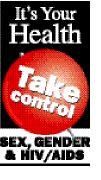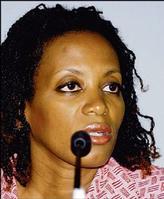Trudy Simpson, Staff Reporter


Gillian Bernard, Sector and Community Response HIV Prevention Coordinator of the National STI/HIV Control Programme, Ministry of Health. - CARLINGTON WILMOT/FREELANCE PHOTOGRAPHER
DESPITE THEIR increasing vulnerability to HIV and other sexually transmitted infections (STIs), many women and girls are still not getting enough sex education to adequately protect themselves from HIV.
According to Lovette Byfield, behaviour change communication specialist in the Health Ministry, too many girls are still left in the dark about sex and healthy relationships.
GIRLS NOT PREPARED
"We have not prepared our girls to deal with sex in a real way. We wait until it becomes a bedroom issue instead of a matter for courtship or before," she said.
This also concerns, Dr. Nesha Haniff, senior programme director at Jamaica AIDS Support (JAS).
"If our girls are going to die at alarming rates, what is going to happen to Jamaica?" she asked at a recent training workshop in Port Maria, St. Mary. "If you get involved in relationships; if you get in love with the man so badly that you compromise who you are, you are not being faithful to yourself. To be faithful to yourself means to be strong and to stand up for who you are."
Standing up for who they are means getting increased self-worth and self-reliance, increased life - skills education and better access to more youth-friendly services, said Dr. Yitades Gebre, former executive director of the National HIV/AIDS/ STI control and prevention programme.
"Society needs to be open to discussing sex and sexuality. They need to be told about relationships and what comprises equal partnerships. There are some good policies aimed at addressing these issues but the Health and Family Life Education (HFLE) programme is not far enough to address issues that face some people. Sexual activity is way ahead of sexual knowledge in Jamaica," he said.
However, Dr. Gebre says the Ministry is seeing encouraging signs from some women in the 25 to 30 age group, who are taking control.
Dr. Gebre points out that there are various reasons for this including that these women are more educated and are more likely to be professionals. He said that women who did not have children before age 25 tended to use condoms more than those who did. The women who got pregnant before age 25 tended to use other forms of contraceptives and tended to trust their partners more because they already have a child with them.
STILL VULNERABLE
But there are still other groups of women and girls who need to be reached, he said.
These include women over age 45. Data show that condom use declines in older men and women. Yet, women aged 45 to 89 accounted for more than 700 of the 3,386 cases involving women who reported developing AIDS between 1982 and March 2005.







